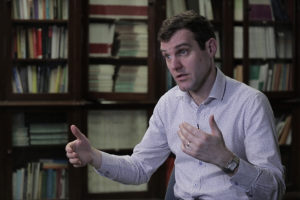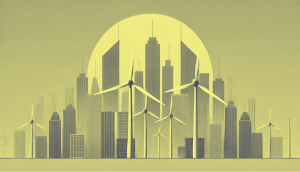Cloud Computing
Cloud Technology Researcher José Luis Vázquez-Poletti on data storage in computing clouds, creating new virtua...
I think Earth observation is probably the most important thing to have come out of the space age. Maybe that’s an overstatement, but for me, if you talk to an astronaut, you’d think, well, astronaut or cosmonaut must be looking out at the Universe.
I’ve yet to meet an astronaut or a cosmonaut who isn’t spending their time in space looking down at the Earth. I think that’s a message to us all: the space age not only meant we could look at the stars from space, it also meant we could see our Earth in a completely new way.
It’s only from space that you can see the Earth as a coherent whole, as a whole planet. We all live on this planet; we share it. It’s the space age that has really given us a feeling for the global behaviour of our planet.
It’s important to remember that our planet is basically an ocean. First of all, two-thirds of its surface is ocean. It’s very hard to look at the ocean: even on a boat, you can’t see it, even on an aeroplane, but space gives you the whole picture. So the understanding, for instance, of how our oceans behave really was radically changed by the space age: suddenly, we could see on a large scale how the oceans carried heat around the planet. Carrying heat is very important: it’s our climate, it’s also our weather, and the basic circulation of the oceans was radically changed by the space age. So, just with the oceans alone, I would say Earth’s observation from space has been immensely important.
And that matters almost just on a daily basis. The change in weather forecasting for a country like the United Kingdom brought on by the space age is unbelievable. Now, you can expect the weather forecast to be accurate. Partly, it’s because we have very good computers, but without the space data going in and feeding the computers, there is no way we can predict not just the weather today but the weather tomorrow and next week with a remarkable level of confidence. If you’re as old as I am and you can remember, before the space age, weather forecasting was not exactly as bad as going to a fortune teller, but it wasn’t entirely reliable in the British Isles because the weather is very changeable here. That affects all of us, and it’s of enormous economic importance. When you harvest, when you sow your crops, farmers now can rely on information that’s come from Earth observation satellites. They don’t know it’s come from there; they get it from the radio or from the meteorological office, but it was space that gave it to us.
So, Earth observation is immensely important for me; however, it doesn’t stop with the weather. The weather matters to us all on a daily basis; less clear is the dependence we have on climate on our economics. We need to know: do we need to control the emissions of carbon dioxide or greenhouse gases because the climate is changing?
The only way you can really get the full picture of the global climate situation is from space.
It’s by using information from space where you can see the whole planet you can find out if the ice caps really are melting and if the glaciers in the mountains are really getting smaller. In some places, they’re growing; in some places, they’re getting smaller. You need to get the whole planetary picture.
For me, Earth observation allows us the capacity to manage our planet better. The frustration for me is that it’s fine if you just do the science, and I’ve mentioned some of the scientific advances, but it would be lovely if we could get out of the political climate a sense that we really have the information here that really allows us collectively, every human being, not every nation but every nation collectively working to manage the planet better. There, politics comes in. But at least Earth observation provides a very large number of the essential climate variables determined across the planet, and you can judge whether climate change is occurring, the speed at which it’s occurring and monitor it.

Cloud Technology Researcher José Luis Vázquez-Poletti on data storage in computing clouds, creating new virtua...

Meteorologist Chris Brierley on the tropical cyclogenesis, the distribution of tropical cyclones on the planet...

Understanding wind energy and how electricity is generated from wind